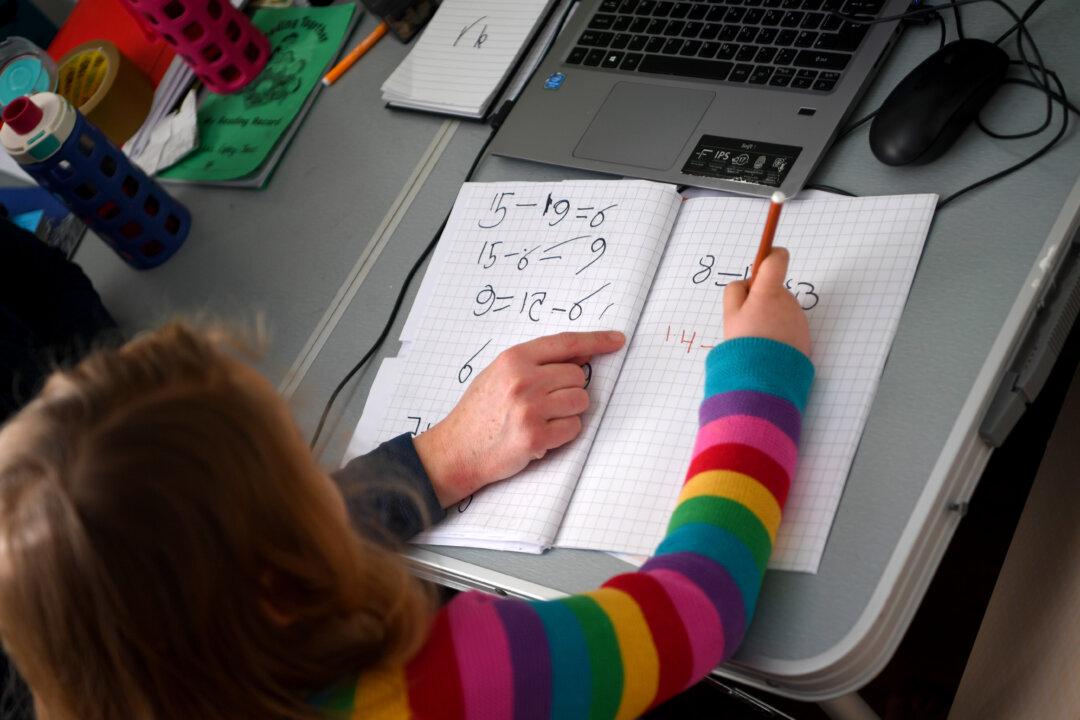Homeschooling has become an increasingly popular choice during the COVID-19 pandemic as parents, frustrated by remote learning and strict COVID-19 rules, take matters into their own hands.
U.S. Census Bureau data released earlier this year show the percentage of households with children being homeschooled doubled to 11.1 percent in fall 2020 from 5.4 percent in spring 2020.





